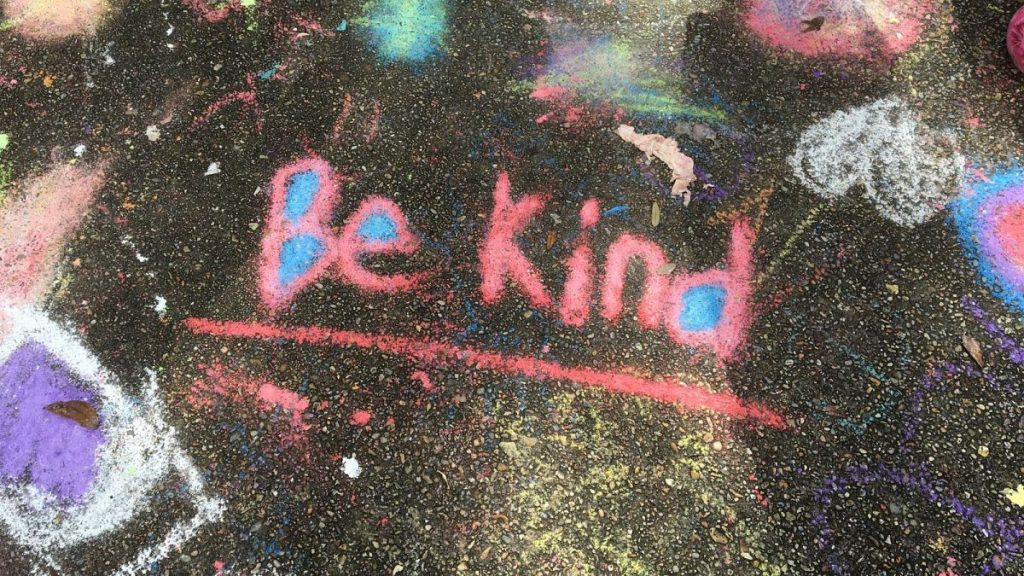In a heartwarming testament to the values cherished by the younger generation, “kindness” has emerged as the Children’s Word of the Year for 2024. This accolade, bestowed by Oxford University Press (OUP), follows a comprehensive survey involving thousands of children aged 6 to 14. The selection process unfolded in two stages: initially, over 3,000 children proposed their word choices, and subsequently, the top three contenders were put to a vote among another 2,000 children. The resounding victory of “kindness,” garnering 61% of the final vote, underscores its profound resonance among young people today. This choice signifies a conscious shift towards valuing empathy, compassion, and the positive impact individuals can have on each other and their communities.
The triumph of “kindness” reflects a broader societal trend where younger generations demonstrate a heightened awareness of social issues and the power of language in fostering unity and understanding. In previous years, the Children’s Word of the Year has mirrored significant events and concerns, such as the passing of Queen Elizabeth II in 2022 (leading to “Queen” being chosen) and the growing urgency of environmental issues in 2023 (resulting in “climate change” being selected). The 2024 selection of “kindness” marks a departure from event-driven choices, highlighting a more intrinsic focus on values and interpersonal relationships. It suggests a growing awareness among children of the importance of emotional well-being and the role of kindness in navigating the complexities of modern life.
The survey also delved into children’s engagement with technology and emerging trends. “Artificial intelligence” secured the second position with 25% of the votes, and notably, 53% of the children who chose this word associated it with positive connotations like “excited” and “optimistic.” This reflects a generally positive outlook on technological advancements among children, suggesting an openness to the potential benefits of AI. Furthermore, the survey explored popular slang terms among children, revealing “slay” as the top choice, followed closely by “sigma” and “skibidi.” These slang terms, while often lacking inherent meaning, provide insights into the evolving language of young people and how they express themselves.
The term “slay,” often used in the LGBTQ+ community and popularized by figures like RuPaul and Beyoncé, signifies achieving something impressive or exceeding expectations. “Sigma,” a term prevalent among Generation Alpha, refers to individuals who are successful, independent, and self-reliant. “Skibidi,” a more ambiguous term, serves as a flexible adjective, conveying notions of coolness, negativity, or even stupidity. These slang words, while seemingly frivolous, offer a glimpse into the dynamic and ever-changing landscape of youthful communication.
Andrea Quincey, director of early years and primary publishing at OUP, emphasized the significance of “kindness” being chosen as the Children’s Word of the Year. She noted the encouraging aspect of young people’s awareness of societal divisions and their understanding of the unifying power of language. Quincey highlighted the personal nature of this year’s choice, suggesting it reflects a growing sensitivity among children towards mental health challenges and the importance of empathy and tolerance. The resounding selection of “kindness” signifies a recognition of its potential not only as a solution to various problems but also as a simple yet powerful act that anyone can perform to make a positive impact.
In contrast to the Children’s Word of the Year, other dictionaries have chosen words reflecting different facets of contemporary society. Collins Dictionary selected “Brat,” perhaps highlighting a perceived rise in unruly behavior. Cambridge Dictionary opted for “Manifest,” possibly reflecting the focus on making aspirations a reality. Merriam-Webster chose “Polarization,” underscoring the increasing divisions in society. Oxford Dictionary, in a more unconventional choice, selected “Brain rot,” a slang term referring to mental fatigue and the overwhelming nature of online information. These diverse choices offer a comprehensive snapshot of the linguistic landscape of 2024, reflecting various social, political, and cultural trends.














